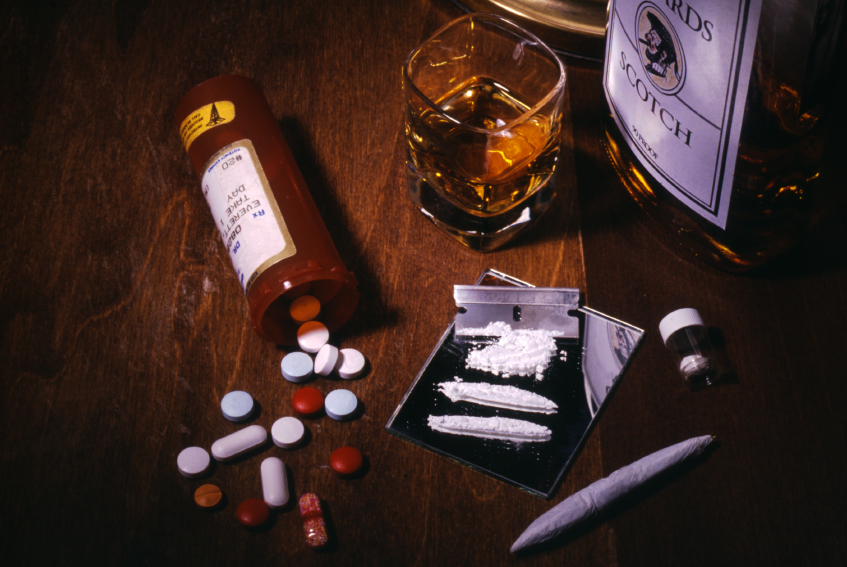Author: Justin Mckibben
As any two addicts can tell you, not all pathways to addiction are the same, but all addictions can easily escalate to the point of incomprehensible deterioration of the mind, body and spirit. No matter what the substance or behavior, we have the capacity to be completely undone by the bad habits we cling to, and exchanging one addiction for the other is often a poor excuse for a solution.
Substituting addictions often shows up in ways like trading smoking for eating, or drinking alcohol for gambling, or even sex for over-working. A lot of addicts who have no concept of a program of recovery tend to try and substitute one addiction for another in an attempt to compensate for what they may feel is absent from their life, and sometimes even those with a program of recovery can slip into these attitudes.
Someone’s affinity toward addiction is typically by a number of factors, including:
- Genetics
- Neurochemistry
- Environmental and social factors
Changing Your Dose
Once addiction is engrained in us it becomes tremendously difficult to break, so it should be no surprise that people who are trying to recover from one addiction can frequently develop a new one, sometimes without even realizing they are doing so.
So many of use recovering addicts or alcoholics can remember a time we tried to convince ourselves that while we knew we could not use one substance, we should be OK using another. I know personally I believed for a long time I had to quit using prescription opiates, but I thought I could still drink alcohol.
Regardless of the nature of the substance itself, it is pretty safe to say that a ‘real deal’ addict such as myself will come to the realization that you don’t get to pick your poison and hope it’s safe; no matter what poison you pick… it’s not.
Many would say it’s obvious that switching drugs for alcohol is a terrible idea for an addict to try and solve their issue, but what about other habits they may not consider as dangerous?
Studies and Surveys
At the University of Southern California Dr. Steven Sussman, a professor of preventive medicine and psychology helped research and write a paper categorizing 11 elements which the paper referred to as “relatively common behaviors” which can become detrimental addictions, including:
- Tobacco use
- Binge-eating
- Gambling
- Internet use
- Love
- Sex
- Excessive exercise
- Work
- Shopping
Then the paper reviewed 83 studies to see which behaviors were most prevalent over a 12-month period. Each study had over 500 people, and they found:
- 23% of all the surveyed individuals had one or more co-occurring addictions
- 47% of all US adults had at least one addiction
With co-occurring addictions the idea of dual diagnosis comes into play, because when someone struggles with two conditions at once, such as a mental health disorder and an alcohol problem, it is pertinent that both conditions be taken into account and treated simultaneously.
Do It for the Dopamine
Because the same mesolimbic pathways are activated in all forms of addiction through the brain, dopamine (also known as anhedonia) contributes to the substitution of one addiction for another. In theory addictions based on either a substance or behavior produces the same kind of brain chemistry the addict is trying to create for their ‘high.’ So whether someone switches from using marijuana to opiates, or opiates to alcohol, they are still seeking to stimulate the same sensations in the brain by relying on an external source; same with replacing the substance for a behavior.
Some people feel a lack of the neurotransmitter dopamine in sobriety, and assume they are not going to get that rush anymore without finding a new habit to hold onto.
Some experts insist the solution for this is to engage in positive activities to inspire a person’s experience of dopamine activity on a somewhat regular basis in healthier ways.
Most of these activities are great for you, but especially in early recovery it is important to keep a balance. While some of these activities are generally healthier than other options, in the end an addiction becomes a bad thing when it is an obsession affecting other areas of your life in a negative way. These things are all part of life, and often are related to the rewards of having a healthier and happier life, but we can still find ways to abuse these activities.
Substituting addictions is dangerous, because any addict or alcoholic can easily develop an issue with another substance, or even a behavior, that is detrimental to them and the people closest to them. But true recovery lies in learning to live without a dependence on a substance, and learning to regulate your behavior to be beneficial to your future.
[cta]
The post Substituting Your Addiction appeared first on Holistic Drug Rehab Blog.
